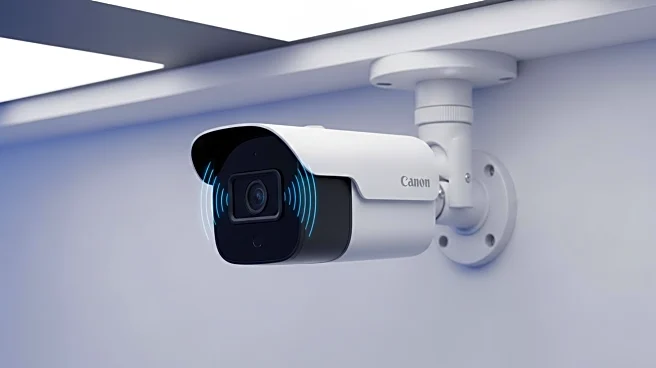What's Happening?
Reolink has unveiled significant advancements in its security camera technology at the Innovation for All (IFA) event in Berlin. The company introduced its upgraded AI system, ReoNeura, which enhances automatic video searching and object detection capabilities. These features allow the cameras to identify various objects such as people, animals, vehicles, bikes, and packages, and provide customizable detection zones and schedules to manage alerts. Additionally, Reolink announced the TrackFlex Floodlight camera, a Wi-Fi model equipped with a 4K dual lens and pan/tilt functionality, offering 360-degree vision and 270-degree motion detection. This camera is designed to cater to both residential and commercial security needs.
Why It's Important?
The introduction of advanced AI features in Reolink's security cameras represents a significant step forward in home and business security technology. By improving object detection and alert customization, these cameras can reduce false alarms and enhance the efficiency of security systems. The TrackFlex Floodlight camera's capabilities, such as its high-resolution imaging and wide motion detection range, provide users with comprehensive surveillance options. This development is likely to influence the security camera market, pushing competitors to innovate and integrate similar AI technologies to meet consumer demands for smarter and more reliable security solutions.
What's Next?
Reolink's advancements may prompt other security camera manufacturers to accelerate their AI development efforts to remain competitive. As AI technology continues to evolve, consumers can expect more sophisticated features in security systems, potentially leading to increased adoption of AI-driven cameras in both residential and commercial settings. Reolink's new camera models are available for pre-order, indicating a forthcoming market release that could further impact consumer choices and industry standards.
Beyond the Headlines
The integration of AI in security cameras raises questions about privacy and data security, as these systems increasingly rely on analyzing video footage. Users must consider the implications of AI monitoring their environments and the potential for data misuse. As AI technology becomes more prevalent, discussions around ethical use and regulation of surveillance systems are likely to intensify.











